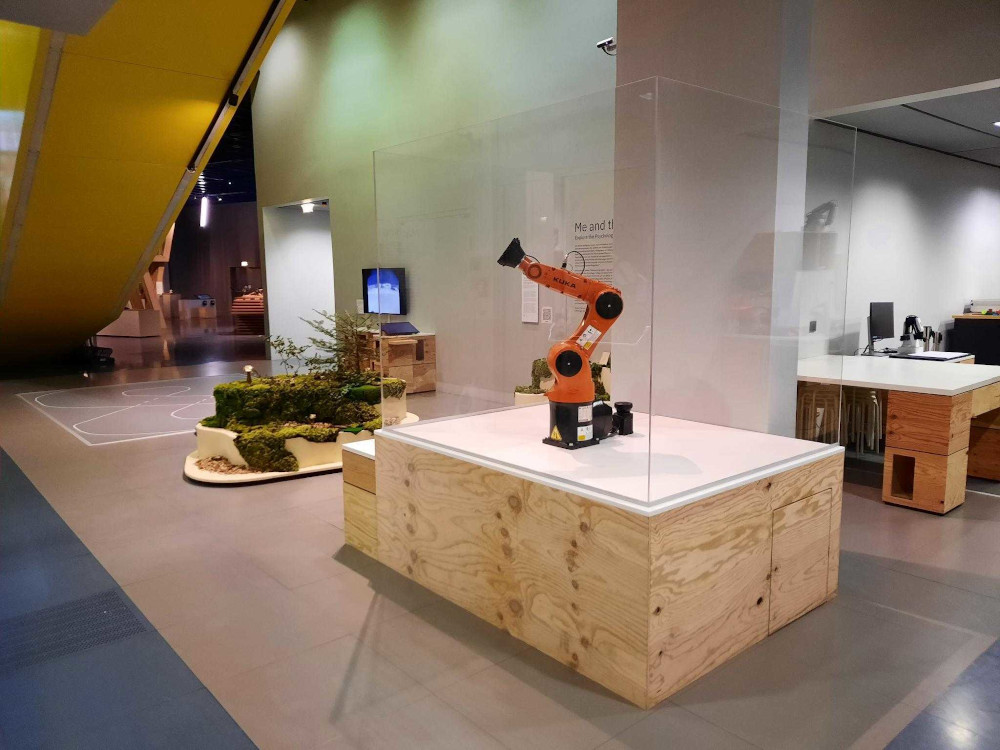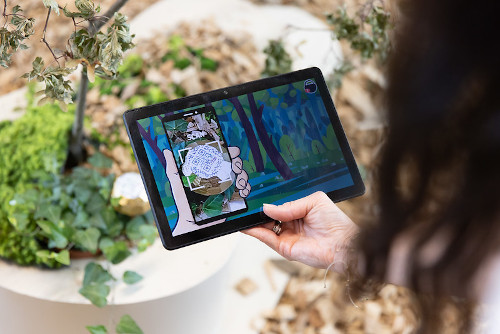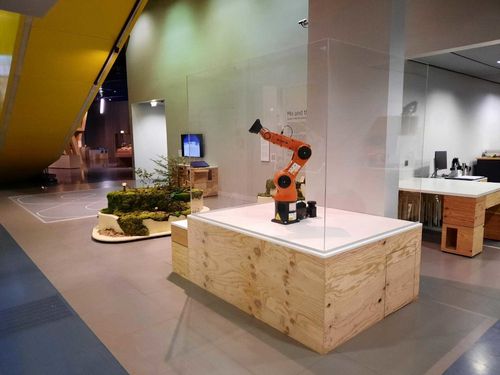 ©LIT Robopsychology Lab
©LIT Robopsychology Lab
Exhibition area at the Ars Electronica Center
We're excited about the opportunity to be present with our research projects in the Ars Electronica Center (on level -3, Machine Learning Studio).
Artificial Intelligence, smart apps and robots are becoming omnipresent interaction partners. We accept their recommendations, we take decisions together, collaborate at work, and talk to them – sometimes almost like talking to real people. But what are these machines to us, how do we experience them as human individuals, with all our different needs and experiences? Are they welcome support or scary competitors, mere tools or social counterparts?
Human thinking, feeling and behavior – these have always been central objects of psychology. Building on this, the Robopsychology Lab at Johannes Kepler University Linz has been researching since 2018 how people experience intelligent machines, how they behave towards them, and how needs of different groups of people are taken into account in technology development. Participatory and transdisciplinary research processes are of great importance for this.
Based on changing works, curated by the scientific team of the Robopsychology Lab, Me and the Machines invites to explore, try out and reflect. Questions explored together with the audience address aspects such as trust and understanding, rejection and acceptance, humanization of machines and dissociation from them. Join in, test your relationship with machine interaction partners, and contribute your opinion to scientific research.
Go on a digital-analogue mushroom hunt in the AI Forest. Find three mushroom objects among the plants and scan them with one of our tablets. With each scan, a photo of a real mushroom appears on the screen and you have to decide: Poisonous or edible?
An artificially intelligent app, which has been fed in advance with a large number of photographs of forest mushrooms, is there to advise you. Its purpose is to identify mushroom varieties. But do you trust this AI? Or maybe you prefer to rely on your own knowledge? You decide!
AI Forest – The mushroom Hunting Game was developed in cooperation between the Robopsychology Lab and the Visual Data Science Lab at JKU Linz. The game is at the same time a research environment in which we systematically investigate the factors on which our trust in AI systems depends.
credits: Martina Mara, Benedikt Leichtmann, Marc Streit, Andreas Hinterreiter, Christina Humer, Moritz Heckmann, Birke von Maartens, Nives Meloni, Leonie Haasler, Gabriel Vitel, Stefan Eibelwimmer
 ©vog.photo
©vog.photo
by Emanuel Gollob & Magdalena May
How can relationship building with a non-humanoid technological body look like? What does it take to create a sense of social presence? What robotic behaviour will make these future omnipresent companions approachable and sympathetic to us humans? With Contact, a first physical contact with a robot can be established. Perhaps, however, the feeling of an emotional connection arises from the joint interaction between human and machine long before the actual contact.
Artist Emanuel Gollob and organizational psychologist Magdalena May cooperate in their work with Creative Robotics and explore the movement and behaviour of robots and the effect of this on human interactors. In collaboration with the LIT Robopsychology Lab at JKU, they have been working on joint projects and scientific studies since 2021.
With kind support from KUKA.
 ©LIT Robopsychology Lab
©LIT Robopsychology Lab